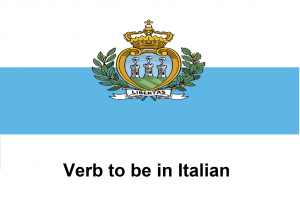Language/Italian/Grammar/How-to-Use-Be
.
Hello everybody,
In today's lesson you will learn some useful vocabulary about ¨VERB TO BE¨ in Italian
Feel free to edit this page by adding new words and expressions !
Good learning ! :)
.
.
Verb to be in Italian
Verb : essere (Past tense)
| ENGLISH | PRONUNCIATION
ENGLISH |
ITALIAN | PRONUNCIATION
BRAZILIAN PORTUGUESE |
BRAZILIAN
PORTUGUESE |
| I was | yoh eh roh | İo ero | ío éro | Eu era /
estava |
| You were | tou eh rih | Tu eri | tu ér | Você era /
estava |
| He was | lou ih eh rah | Lui era | luí éra | Ele era /
estava |
| She was | lay eh rah | Lei era | léi éra | Ela era /
estava |
| We were | noy eh rah vah moh | Noi eravamo | nói erá va mo | Nós éramos /
estavamos |
| You were | voy eh rah vah | Voi eravate | vói erá va te | Vocês eram /
estavam |
| They were (mas) | loh roh eh rah noh | Loro erano | ló ro éra no | Eles eram /
estavam |
| They were (fem) | loh roh eh rah noh | Loro erano | ló ro éra no | Elas eram /
estavam |
.
Verb : essere (Present tense)
| ENGLISH | PRONUNCIATION
ENGLISH |
ITALIAN | PRONUNCIATION
BRAZILIAN PORTUGUESE |
BRAZILIAN
PORTUGUESE |
| I am | yoh | İo sono | ío | Eu sou /
estou |
| You are | tou | Tu sei | tu | Você é /
está |
| He is | lou ih | Lui è | luí | Ele é /
está |
| She is | lay | Lei è | léi | Ela é /
está |
| We are | noy | Noi siamo | nói | Nós somos /
estamos |
| You are | voy | Voi siete | vói | Vocês são /
estão |
| They are (mas) | loh roh | Loro sono | ló ro | Eles são /
estão |
| They are (fem) | loh roh | Loro sono | ló ro | Elas são /
estão |
.
Verb : essere (Future tense)
| ENGLISH | PRONUNCIATION
ENGLISH |
ITALIAN | PRONUNCIATION
BRAZILIAN PORTUGUESE |
BRAZILIAN
PORTUGUESE |
| I will be | yoh | İo sarò | ío | Eu serei /
estarei |
| You will be | tou | Tu sarai | tu | Você será /
estará |
| He will be | lou ih | Lui sarà | luí | Ele será /
estará |
| She will be | lay | Lei sarà | léi | Ela será /
estará |
| We will be | noy | Noi saremo | nói | Nós seremos /
estaremos |
| You will be | voy | Voi sarete | vói | Vocês serão /
estarão |
| They will be (mas) | loh roh | Loro saranno | ló ro | Eles serão /
estarão |
| They will be (fem) | loh roh | Loro saranno | ló ro | Eles serão /
estarão |
.
Verb : essere (Present tense / Negative form)
Use the word (NON) between the pronoun and the verb (it works for all tense (Past / Present and Future)
| ENGLISH | PRONUNCIATION
ENGLISH |
ITALIAN | PRONUNCIATION
BRAZILIAN PORTUGUESE |
BRAZILIAN
PORTUGUESE |
| I am not | yoh nohn | İo non sono | ío | Eu não sou /
não estou |
| You are not | tou nohn | Tu non sei | tu | Você não é /
não está |
| He is not | lou ih nohn | Lui non è | luí | Ele não é /
não está |
| She is not | lay nohn | Lei non è | léi | Ela não é /
não está |
| We are not | noy nohn | Noi non siamo | nói | Nós não somos /
não estamos |
| You are not | voy nohn | Voi non siete | vói | Vocês não são /
não estão |
| They are not (mas) | loh roh nohn | Loro non sono | ló ro | Eles não são /
não estão |
| They are not (fem) | loh roh nohn | Loro non sono | ló ro | Elas não são /
não estão |
Essere / To be
Tempo Presente / Present Tense
| Io sono | I am | ||
|---|---|---|---|
| Tu sei | You are | ||
| Egli* è | He is | ||
| Noi siamo | We are | ||
| Voi siete | You are | ||
| Essi** sono | They are |
*The plural 3rd person subject pronoun egli has been considerably dropped out of usage. In everyday Italian people usually refer to the 3rd person with object pronoun form, lui. The 3rd person female object pronoun form is lei. Grammar books still widely report the subject form, especially in conjugation tables.
** Likelywise, in today spoken Italian native speakers tend to prefer the 3rd person plural object form loro.
Mind the difference!
è - 3rd person form, "is" VS e - conjuction "and"
The items are slightly different in prononciation too. 3rd person form è is a voiced open sound, you should feel a breath stop which strikes on the lower part of your voice box. Conjunction e tends to be more silent as a liaison sound.

